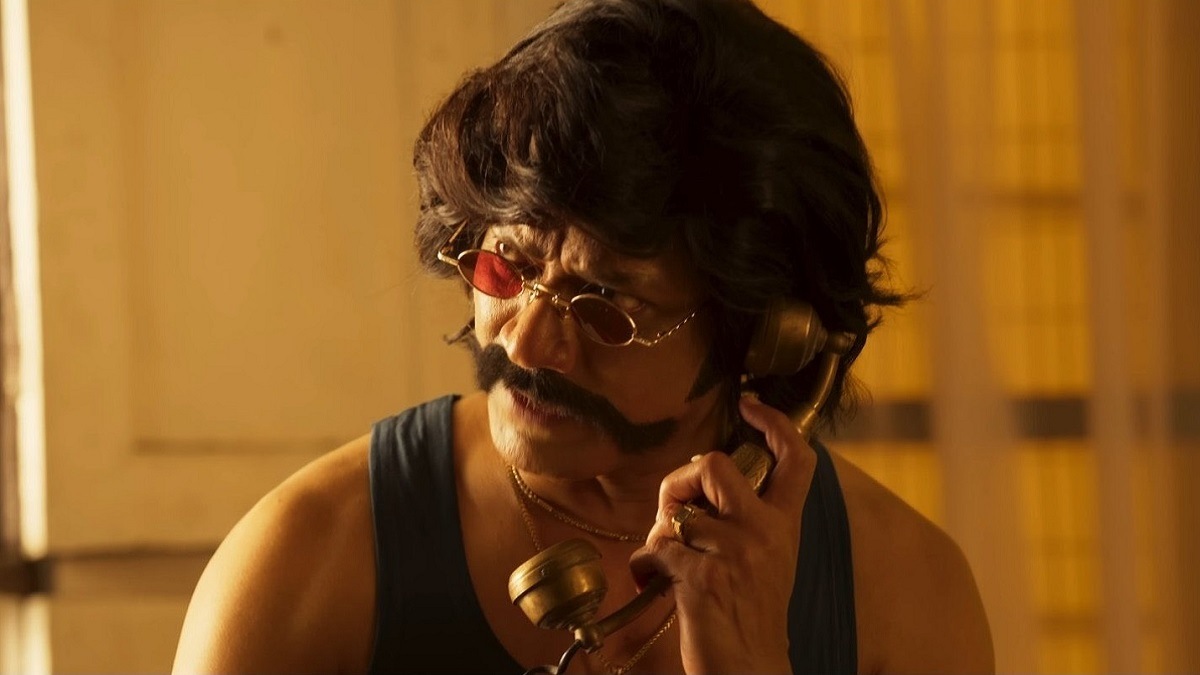What SJ Suryah Gets Right About Playing The Antihero
His latest release, Mark Antony proves that getting stereotyped has worked in the actor's favour, writes Karthik Keramalu.
Sep 24, 2023

PERHAPS the most famous scene in Shankar’s Enthiran (2010) is the one where Chitti (a robot, played by Rajinikanth) desperately tries to find the scientist Vaseegaran (also played by Rajinikanth) amidst hundreds of clones. Chitti refers to the latter as a “Black Sheep” because he doesn’t owe allegiance to his own maker anymore and wishes to eliminate him. His hatred towards him stems from the resistance he faces when he attempts to get into a relationship with the love of his life, Sana (Aishwarya Rai Bachchan).
Chitti believes he’s smarter and stronger than humans. As a robot, he feels invincible. And Rajinikanth, as an actor who slips into the shoes of an atypical villain, embraces his egoistic nature the way a moth circles a flame. It’s a laugh-out-loud scene in which he plays to the gallery. When Chitti’s simple methods to spot the Black Sheep do not bear fruit, he orders the clones to rotate their heads. They do not have a problem with it obviously, and do as they are told; however, Vaseegaran fails and gets caught.
I’m giving this example to demonstrate how canvases handed to the antagonists are more colourful at times than those of the protagonists’. Though good wins over evil in the end, it’s the evil that mostly keeps us entertained – at least in movies and shows where the baddies are not just muscled men whose strengths are limited to lifting cars and throwing logs at passersby. Even in Christopher Nolan’s The Dark Knight (2008), the Joker (Heath Ledger) turns out to be the bigger draw since he has more fun on the screen. Batman (Christian Bale) can save the world, but can he destroy it? A hero cannot exist without a villain.
SJ Suryah gets this basic ingredient right every time he features as the antihero. Exaggeration, as an art form, has always had takers despite being confined to the domain of comedy. In Tamil cinema, MR Radha, Nagesh, Goundamani, and Vadivelu have been the driving force behind the genre. I don’t consider Sivaji Ganesan to be a part of this coterie, as his body language tends to reach for the summit of pathos. His exaggerated gestures and dialogue delivery were meant to evoke sympathy, and not laughter.
Suryah, on the other hand, combines the irrepressible qualities of vileness and humour. It wouldn’t be wrong to say that he keeps copying himself. In fact, the secret of turning an ordinary line into a catchphrase lies in its ability to be repeated at constant intervals or in its inherent ability to enhance a particular scene. In Nenjam Marappathillai and Maanaadu both 2021 releases, Suryah stars as despicable men; the Telugu-Tamil bilingual Spyder (2017) is no exception. Although his characters deserve nothing but contempt, he plays them with a touch of flamboyance that’s hard to ignore.
Take these phrases, “Dei, summa irra (dude, keep quiet)” and “Vandhaan, suttaan, sethaan, repeatu (he came, he shot, he died, repeat),” from Nenjam Marappathillai and Maanaadu respectively, that entirely relied on Suryah’s prowess – they wouldn’t have become worthy of being reproduced at social gatherings on their own. They gained traction only because of his heightened expressions.
Fahadh Faasil has also done this in Kumbalangi Nights (2019) and Trance (2020), albeit with studied determination. While his performance can be likened to well-stirred batter that sticks to the pan even when turned upside down, Suryah’s eagerness to dial up the crankiness comes across as loose-footed. The former, for lack of a better comparison, is a teacher’s pet, and the latter is a troublemaker who doesn’t care about the exams.
As actors, however, I like them both equally. This brings me to the latest Tamil release in question, Mark Antony where Suryah stars as two quintessential cunning fellows. It’s not the story as such that packs a punch here. To be honest, the science fiction angle of this Adhik Ravichandran movie has plenty of writing loopholes. But what makes it watchable is the sheer lack of inhibition with which Suryah champions the director’s vision. He doesn’t hold himself back anywhere.
In the role of a womanising gangster who despises being the second-in-command, his plans to kill his best friend (portrayed by Vishal) do not exactly see the light of day. And in the role of the son, whose thirst for murder matches his father’s vengeance, his little wins do not remain in his basket forever. Mark Antony unlike Maanaadu, will be forgotten by the end of the year; it’s not worth carrying its burden forward. (Ugh, why was Silk Smitha depicted in such a regressive way?)
But the movie goes on to prove that getting stereotyped has worked in Suryah’s favour. Even though he’s within his element in sombre comedies, such as Monster (2019) and Don (2022), he’s appreciated far more for his wildness nowadays. Will this remove some of the options from his table? I don’t think so. It doesn’t matter if his filmography becomes a long list of caricatures. If he taps into the vein that makes him a unique performer, he’ll keep shining.
Share